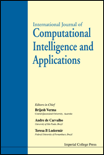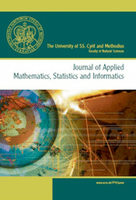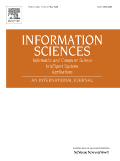
International Journal of Fuzzy Logic and Intelligent Systems
Scope & Guideline
Elevating Understanding of Intelligent Technologies Globally
Introduction
Aims and Scopes
- Fuzzy Logic Theory and Applications:
The journal emphasizes the development and application of fuzzy logic theories, including fuzzy sets, fuzzy relations, and fuzzy reasoning mechanisms across diverse domains. - Intelligent Systems and Machine Learning:
A significant focus is on intelligent systems that incorporate machine learning techniques, including neural networks, genetic algorithms, and hybrid models that leverage fuzzy logic for enhanced decision-making. - Mathematical Modeling and Computational Techniques:
The journal publishes research related to mathematical modeling of real-world problems using fuzzy logic, including differential equations, optimization problems, and algorithm development. - Applications in Engineering and Technology:
Research that applies fuzzy logic and intelligent systems to engineering problems, such as control systems, robotics, and telecommunications, is a core area of interest. - Healthcare and Bioinformatics:
The journal explores applications of fuzzy logic in healthcare, including diagnostic systems, patient management, and bioinformatics, showcasing its relevance in improving health outcomes.
Trending and Emerging
- Integration of Fuzzy Logic with Machine Learning:
Recent publications indicate a strong trend towards integrating fuzzy logic with machine learning techniques, enhancing the ability to handle uncertainty and improve predictive modeling in complex systems. - Applications in Data Science and Big Data:
There is a growing emphasis on applying fuzzy logic to data science, particularly in handling big data challenges, such as data classification, clustering, and sentiment analysis, showcasing the relevance of fuzzy methods in modern analytics. - Smart Systems and IoT Applications:
The rise of smart systems and the Internet of Things (IoT) has led to increased research on fuzzy logic applications in smart environments, indicating a trend towards developing intelligent systems that can operate autonomously in real-time. - Healthcare Innovations and Diagnostics:
Emerging themes in healthcare applications are prominent, particularly in diagnostics and patient management systems, leveraging fuzzy logic to improve decision-making processes in medical contexts. - Advanced Computational Techniques:
Recent trends show a growing interest in advanced computational techniques, such as quantum computing and hybrid algorithms, which integrate fuzzy logic with other cutting-edge technologies for solving complex problems.
Declining or Waning
- Traditional Fuzzy Control Systems:
Research focusing solely on traditional fuzzy control systems has seen a decline, as newer methodologies and hybrid approaches gain traction, indicating a shift towards more complex and integrated systems. - Basic Fuzzy Set Theory:
While foundational theories of fuzzy sets remain important, there is a noticeable reduction in publications dedicated solely to basic concepts, as researchers now prefer to explore more advanced applications and combinations with other methodologies. - Static Applications of Fuzzy Logic:
The focus on static applications, where fuzzy logic is applied without consideration for dynamic systems or real-time data, is waning as the field moves towards more adaptive and responsive systems.
Similar Journals

Malaysian Journal of Mathematical Sciences
Empowering Mathematics: Bridging Innovation and Interdisciplinary InsightsMalaysian Journal of Mathematical Sciences, published by UNIV PUTRA MALAYSIA PRESS, serves as a prominent platform for the dissemination of innovative research in the field of mathematics. With an ISSN of 1823-8343 and spanning from 2007 to 2024, this journal places a particular emphasis on general mathematics while welcoming contributions that touch on various interdisciplinary applications. Despite its current positioning in Q4 of the mathematics category and ranking #239 out of 399 in Scopus, the journal actively aims to enhance the visibility and impact of mathematical research within Malaysia and the broader academic community. It provides crucial access to emerging ideas, making it an essential resource for researchers, professionals, and students eager to stay abreast of contemporary developments in mathematical sciences. The journal's commitment to open access ensures that findings are readily available to a global audience, fostering collaboration and discussion among scholars worldwide.

International Journal of Intelligent Computing and Cybernetics
Unleashing Potential in Intelligent Computing and Cybernetic SolutionsThe International Journal of Intelligent Computing and Cybernetics, published by EMERALD GROUP PUBLISHING LTD, serves as a pivotal platform for advancing the field of intelligent computing and cybernetics since its inception in 2008. With a strong focus on innovative research and interdisciplinary collaboration, this journal is positioned in the prestigious Q2 category of Computer Science, ranking at an impressive 42nd out of 232 in Scopus, reflecting an 82nd percentile performance. The journal provides a venue for scholars and practitioners to disseminate their findings on cutting-edge technologies and methodologies that bridge the realms of computing, artificial intelligence, and cybersecurity. Although currently not an open-access journal, it widely circulates valuable insights essential for driving forward academic discourse and practical applications in the rapidly evolving digital landscape. Researchers, professionals, and students are encouraged to engage with this journal to stay at the forefront of advancements in intelligent systems and cybernetic solutions.

International Journal of Fuzzy Systems
Pioneering Research at the Intersection of Theory and PracticeThe International Journal of Fuzzy Systems, published by SPRINGER HEIDELBERG, is a premier platform for disseminating cutting-edge research in the fields of Artificial Intelligence, Control and Systems Engineering, Computational Theory and Mathematics, and more. With an impressive impact factor reflected in its Q2 category rankings across various domains, this journal serves as a vital resource for researchers, professionals, and students eager to explore the applications of fuzzy logic in solving complex real-world problems. Established in 2004, the journal continues to contribute significantly to theoretical advancements and practical implementations in areas such as information systems and software engineering. The journal does not offer Open Access, ensuring a curated audience of engaged readers and contributors. Its rigorous peer-review process guarantees high-quality publications that resonate within the scientific community. For those interested in the intersection of theoretical insights and practical applications, the International Journal of Fuzzy Systems stands out as an essential venue for knowledge exchange and innovation.

AIMS Mathematics
Elevating mathematical discourse with cutting-edge research.AIMS Mathematics, published by the American Institute of Mathematical Sciences (AIMS), is a premier open-access journal that has been providing a platform for innovative research since its inception in 2016. With a keen focus on diverse areas within the field of mathematics, this journal aims to disseminate high-quality studies that cater to both theoretical and applied aspects of mathematics. As evidenced by its impressive Scopus rank of 52 out of 399 in the category of General Mathematics, placing it in the 87th percentile, AIMS Mathematics stands as a significant contributor to the academic discourse in this discipline. The journal operates under Q2 in Mathematics (miscellaneous) for its 2023 category quartiles, reflecting its rigorous peer-reviewed process and substantial impact on current mathematical research. Accessible since its launch, the journal's open-access model ensures that researchers, professionals, and students alike can easily retrieve insights and advancements in mathematics, fostering collaboration and the advancement of knowledge globally.

International Journal of Computational Intelligence and Applications
Pioneering Research in Intelligent SystemsThe International Journal of Computational Intelligence and Applications, published by WORLD SCIENTIFIC PUBL CO PTE LTD, is a prominent journal dedicated to advancing the field of computational intelligence and its applications, with a keen focus on innovative methodologies and theoretical frameworks. With an impact factor reflective of its growing influence, the journal is classified in Q3 for Computer Science Applications and holds Q4 standings in both Software and Theoretical Computer Science as of 2023, showcasing its critical niche within these disciplines. Established in 2008 and converging through 2024, this journal serves as a vital resource for researchers, professionals, and students in Singapore and beyond, promoting scholarly communication and collaboration. Although it is a non-open access journal, it still provides a wealth of information that is readily accessible through institutional subscriptions and library resources. Researchers contributing to the journal benefit from its wide reach and dedicated readership, making it a substantial platform to disseminate groundbreaking research and insights.

Journal of Electrical Systems
Connecting Researchers to Transformative IdeasThe Journal of Electrical Systems is a prominent Open Access journal published by the ENGINEERING & SCIENTIFIC RESEARCH GROUPS since 2005, dedicated to presenting valuable research in the realms of Electrical and Electronic Engineering as well as Computer Science. With an ISSN of 1112-5209 and an E-ISSN of 1112-5209, this journal seeks to foster innovation and share knowledge among researchers and practitioners operating in these critical fields. Operating out of Paris, France, the journal has made significant strides despite recent categorizations placing it in the Q4 quartile of Computer Science and Electrical and Electronic Engineering. Its ongoing commitment to disseminating impactful findings is underscored by its open accessibility, enabling a wider audience to engage with research that spans various interdisciplinary applications. The journal continuously invites contributions that enhance our understanding of electrical systems, empowering stakeholders at all levels to push the boundaries of technology and engineering.

Journal of Applied Mathematics Statistics and Informatics
Bridging Theory and Application in Mathematics and InformaticsJournal of Applied Mathematics Statistics and Informatics, published by SCIENDO, is a premier Open Access journal dedicated to the dissemination of innovative research in the realms of applied mathematics, statistics, and informatics. Since its establishment, the journal has committed to providing a platform for researchers, practitioners, and academicians to share their findings and methodologies that advance these interconnected fields. With its ISSN 1336-9180 and E-ISSN 1339-0015, it serves as a critical resource for those engaged in quantitative analysis and computational solutions, supporting its audience with immediate access to groundbreaking works. The journal prioritizes high-quality peer-reviewed articles that explore a broad range of topics, from statistical modeling and computational algorithms to the application of mathematics in real-world scenarios. As a valuable asset for researchers and students alike, it fosters collaborative efforts and strengthens the global academic community by providing accessible knowledge, enhancing learning and professional practice in the competitive landscape of applied mathematics and information sciences.

International Journal of Applied Mathematics and Computer Science
Connecting Ideas, Inspiring Solutions in Applied Mathematics and Computer ScienceThe International Journal of Applied Mathematics and Computer Science is a premier open-access journal published by SCIENDO, dedicated to advancing knowledge in the interdisciplinary fields of applied mathematics, computer science, and engineering. Since its inception in 2001, the journal has continually provided a platform for researchers to publish high-quality, peer-reviewed articles, contributing significantly to its fields, as evidenced by its strong Q2 quartile rankings in 2023 across key disciplines. With a notable impact factor and ranking within the Scopus database—#135 in Applied Mathematics and #45 in Computer Science—the journal emphasizes innovative research and practical applications. Open access since 2014, it has aimed to foster collaboration and ensure that vital scientific knowledge is accessible to a broader audience, positioning itself as an essential resource for researchers, professionals, and students seeking to stay on the cutting edge of technological and mathematical advancements.

INFORMATION SCIENCES
Exploring Innovations in Data and SystemsINFORMATION SCIENCES, published by Elsevier Science Inc, is a premier peer-reviewed journal that has become instrumental in advancing the field of information science since its inception in 1968. With an impressive array of quartile rankings in 2023, including Q1 in Artificial Intelligence, Computer Science Applications, Control and Systems Engineering, Information Systems and Management, Software, and Theoretical Computer Science, this journal serves as a vital resource for researchers and professionals looking to explore cutting-edge theories and practical applications within these domains. The journal is indexed extensively, with notable Scopus rankings, reflecting its significance and influence in the academic community—ranked 6th in Theoretical Computer Science and 10th in Information Systems and Management, among others. Although it does not currently offer an open-access option, the depth of research published within INFORMATION SCIENCES ensures that it remains a key reference point for advancing academic inquiry and addressing complex challenges in the information landscape.

SOFT COMPUTING
Unleashing the Power of Genetic Algorithms and BeyondSOFT COMPUTING is a premier international journal published by Springer, focusing on the interdisciplinary field of soft computing, which includes areas such as fuzzy logic, neural networks, genetic algorithms, and their applications. With an ISSN of 1432-7643 and E-ISSN 1433-7479, the journal is based in Germany and contributes significantly to the advancement of knowledge in its fields, boasting an impressive Scopus ranking that places it in the top echelons of Geometry and Topology, Theoretical Computer Science, and Software categories. In the 2023 category quartiles, it has achieved Q2 rankings in multiple disciplines, reflecting its high-quality research contributions. Though not Open Access, the journal's rigor and relevance to contemporary issues make it a favored resource for researchers, professionals, and students alike. From its inception in 2000 and spanning across the years until 2024, SOFT COMPUTING continues to serve as a robust platform for innovative research and theoretical advancements, making it an essential read for anyone engaged in the rapidly evolving landscape of computational intelligence.